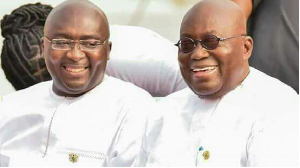



According to Nana Ohene Ntow, Senior Advisor to Movement for Change founder and leader Alan Kyerematen, Ghana would have suffered greatly if the New Patriotic Party (NPP) had prevailed in the just finished elections. Speaking on TV3 on Saturday, December 14, Ntow emphasized the terrible situation of the economy under the NPP, pointing to the unchecked threat of "galamsey" (illegal mining), corruption, the haughtiness of authority, economic mismanagement, and growing sufferings as major causes of the country's problems. "Ghana would have been destroyed if the NPP had won this election because of the extent of corruption, the haughtiness of power, poor management, economic challenges, and the devastation of our natural resources," Ntow claimed.
The Movement for Change, led by Alan Kyerematen and other like-minded people, Ntow said, aimed to convey a clear message: Ghana's governance urgently needs to undergo quantifiable, significant change. Broad discontent with the NPP government, he said, emphasized the need for fresh leadership to reestablish responsibility and optimism. His remarks follow the December 7 elections, in which John Dramani Mahama, the presidential candidate of the National Democratic Congress (NDC), received 56.55% of the vote, defeating his primary opponent, Dr. Mahamudu Bawumia of the NPP, who received 41.61%.
Ntow emphasized that Ghanaians' rejection of the status quo was evident in the election results. In the midst of escalating difficulties, he cautioned that an NPP victory would have driven Ghana into irrevocable decline. He called it a critical step in questioning and reforming the country's political course, even though he admitted that the change brought about by the elections might not be as revolutionary as hoped.